- Home
- Barry Eisler
Hard Rain Page 3
Hard Rain Read online
Page 3
I had spotted Tatsu behind me one night as I was making my way to Overseas, a jazz club in Honmachi that I had come to like. Although I gave no sign, I had recognized him immediately. Tatsu has a squat build and a way of rolling his shoulders from side to side when he walks that makes him hard to miss. If the tail had been someone else, I would have doubled back and questioned him, if possible. Eliminated him, if not.
But since Tatsu himself was the one behind me, I knew I was in no immediate danger. As a department head with the Keisatsucho, Japan’s FBI, he could easily have had me picked up already, if that’s what he had wanted. The hell with it, I had decided. Akiko Grace, a young pianist who had electrified Japan’s jazz world with her debut CD From New York, was appearing that night, and I wanted to see her play. If Tatsu was inclined to join me, he could.
He had arrived midway through the second set. Grace was doing “That Morning,” a melancholy piece from Manhattan Story, her second CD. I watched him pause just inside the entrance, his eyes scanning the tables in back. I would have signaled him, but he knew where to look.
He made his way to my table and squeezed in next to me as though it was the most natural thing in the world that he should be meeting me here. As usual, he was wearing a dark suit that fit him like an afterthought. He nodded a greeting. I returned the gesture, then went back to watching Grace play.
She was facing away from us, wearing a shoulderless gold-sequined gown that shimmered under the cool blue spotlights like heat lightning in the night. Watching her made me think of Midori, although as much by contrast as by association. Grace’s attitude was funkier, with more swaying, more sideways approaches to the piano, and her style was generally softer, more contemplative. But when she got going, on numbers like “Pulse Fiction” and “Delancey Street Blues,” she had that same air of having been possessed by the instrument, as though the piano was a demon and she its exhilarated amanuensis.
I remembered watching Midori play, standing in the shadows of New York’s Village Vanguard, knowing it would be the last time. I’d seen other pianists perform since then. It was always a sad pleasure, like making love to a beautiful woman, but not to the woman you love.
The set ended and Grace and her trio left the stage. But the audience wouldn’t stop applauding until they had returned, with an encore of Thelonious Monk’s “Bemsha Swing.” Tatsu was probably frustrated. He wasn’t there to enjoy the jazz.
After the encore, Grace moved to the bar. People began to get up to thank her, perhaps to have her sign the CDs they had brought, then to move on to whatever else the night had in store for them.
When the people next to us had departed, Tatsu turned to me. “Retirement doesn’t suit you, Rain-san,” he said in his dry way. “It’s making you soft. When you were active, I couldn’t have tracked you down like this.”
Tatsu rarely wastes time on formalities. He knows better, but can’t help himself. It’s one of the things I’ve always liked about him.
“I thought you wanted me to retire,” I said.
“From your relationship with Yamaoto and his organization, yes. But I thought we might then have the opportunity to work together. You understand my work.”
He was talking about his never-ending battle with Japanese corruption, behind much of which was his nemesis Yamaoto Toshi, politician and puppet master, the man who had suborned Holtzer, who for a time had been my unseen employer as well.
“I’m sorry, Tatsu. With Yamaoto and maybe the CIA after me, things were too hot. I wouldn’t have been much good to you even if I’d wanted to be.”
“You told me you would contact me.”
“I thought better of it.”
He nodded, then said, “Did you know that, just a few days after the last time we saw each other, William Holtzer died of a heart attack in the parking garage of a hotel in suburban Virginia?”
I remembered how Holtzer had mouthed the words I was the mole . . . I was the mole . . . when he thought I was going to die. How he had set me against my blood brother, Crazy Jake, in Vietnam, and gloated about it afterward.
“Why do you ask?” I said, my tone casual.
“Apparently, his death came as a surprise to people who knew him in the intelligence community,” he went on, ignoring my question, “because Holtzer was only in his early fifties and also kept physically fit.”
Not physically fit enough for three hundred and sixty joules from a modified defibrillator, I thought.
“It just goes to show you, you can’t be too careful,” I said, taking a sip of the twelve-year-old Dalmore I was drinking. “I take a baby aspirin myself, once a day. There was an article about it in the Asahi Shimbun a few years ago. Supposed to dramatically reduce the chances of heart problems.”
He was silent for a moment, then shrugged and said, “He was not a good man.”
Was this his way of telling me he knew I did Holtzer but didn’t care? If so, what was he going to ask in return?
“How did you hear about all this?” I asked.
He looked down at the table, then back at me. “Some of Mr. Holtzer’s associates from the CIA’s station in Tokyo contacted the Metropolitan Police Force. They were less concerned about the fact of his death than they were about the manner of it. They seem to believe you killed him.”
I said nothing.
“They wanted the assistance of the Metropolitan Police Force in locating you,” he went on. “My superiors informed me that I was to offer full cooperation.”
“Why are they coming to you for help?”
“I suspect that the Agency has been tasked with trying to eliminate some of the corruption that is paralyzing Japan’s economy. The United States is concerned that if the situation worsens, Japan’s finances could collapse. A ripple effect, and certainly a global recession, would follow.”
I understood Uncle Sam’s interest. Everyone knew the politicians were focused more on ensuring that they got their share of graft from rigged public works and yakuza payoffs than they were on resuscitating a dying economy. You could smell the rot from afar.
I took another sip of the Dalmore. “Why do you suppose they’d be interested in me?”
He shrugged. “Perhaps revenge. Perhaps as part of some anticorruption effort. After all, we know Holtzer was issuing intelligence reports identifying you as the ‘natural causes’ assassin behind the deaths of so many Japanese whistle-blowers and reformers. Perhaps both.”
Just like Holtzer, I thought. Getting credit for the intelligence reports while using the subject for his own ends. I remembered how he had looked when I left him slumped and lifeless in his rent-a-car in that suburban Virginia parking garage, and I smiled.
“You don’t seem terribly concerned,” Tatsu said.
I shrugged. “Of course I’m concerned. What did you tell them?”
“That, so far as I knew, you were dead.”
Here it comes, then. “That was good of you.”
He smiled slightly, and I saw a bit of the wily, subversive bastard I had liked so much in Vietnam, where we had met when he was seconded there by one of the precursors of the Keisatsucho.
“Not so good, really. We’re old friends, after all. Friends should help each other from time to time, don’t you agree?”
He knew I owed him. I owed him just for letting me go after I’d ambushed Holtzer outside the naval base at Yokosuka, despite all the years he’d spent trying to ferret me out previously. Now he was putting the Agency off my scent, and I owed him for that, too.
The debts were only part of it, of course. There was also an implicit threat. But Tatsu had a soft spot for me that kept him from being too direct. Otherwise, he would have dispensed with all the win-win, we’re old pals bullshit and would have just told me that if I didn’t cooperate he’d share my current name and address with my old friends at Christians In Action. Which he could very easily do.
“I thought you wanted me to retire,” I said again, knowing I’d already lost.
He reached int
o his breast pocket and took out a manila envelope. Placed it on the table between us.
“This is a very important job, Rain-san,” he said. “I wouldn’t ask for this favor if it weren’t.”
I knew what I would find in the envelope. A name. A photograph. Locations of work and residence. Known vulnerabilities. The insistence on the appearance of “natural causes” would be implicit, or delivered orally.
I made no move to touch the envelope. “There’s one thing I need from you before I can agree to any of this,” I told him.
He nodded. “You want to know how I found you.”
“Correct.”
He sighed. “If I share that information with you, what would stop you from disappearing again, even more effectively this time?”
“Probably nothing. On the other hand, if you don’t tell me, there’s no possibility that I would be willing to work with you on whatever you’ve got in that envelope. It’s up to you.”
He took his time, as though pondering the pros and cons, but Tatsu always thinks several moves ahead and I knew he would have anticipated this. The hesitation was theater, designed to convince me afterward that I had won something valuable.
“Customs Authority records,” he said finally.
I wasn’t particularly surprised. I had known there was some risk that Tatsu would learn of Holtzer’s death and assume I had been behind it, that if he did so he would be able to fix my movements between the time he last saw me in Tokyo and the day Holtzer died outside of D.C., less than a week apart. But killing Holtzer had been important to me, and I had been prepared to pay a price for the indulgence. Tatsu was simply presenting me with the bill.
I was silent, and after a moment he continued. “An individual traveling under the name and passport of Fujiwara Junichi left Tokyo for San Francisco last October thirtieth. There is no record of his having returned to Japan. The logical assumption is that he stayed in the United States.”
In a sense, he did. Fujiwara Junichi is my Japanese birth name. When I learned that Holtzer and the CIA had discovered where I was living in Tokyo, I knew the name was blown and no longer usable. I had traveled to the States to kill Holtzer under the Fujiwara passport and then retired it, returning to Japan under a different identity that I had previously established for such a contingency. I had hoped that anyone looking for me might be diverted by this false clue and conclude that I had relocated to the States. Most people would have. But not Tatsu.
“Somehow, I could not see you living in the States,” he went on. “You seemed . . . comfortable in Japan. I did not believe you were ready to leave.”
“I suppose you might have been on to something there.”
He shrugged. “I asked myself, if my old friend hadn’t really left Japan, but only wanted me to believe that he had, what would he have done? He would have reentered the country under a new name. He would have then relocated to a new city, because he had become too well known in Tokyo.”
He paused, and I recognized the employment of a fortune-teller’s trick, in which the party ostensibly charged with supplying information instead cleverly elicits it, probing under the guise of informing. So far, Tatsu had offered only suggestions and generalities, and I wasn’t going to fill in the blanks for him by confirming or denying any of it.
“Perhaps he would have used the same new name to reenter the country, and then to relocate within it,” he said, after a moment.
But I hadn’t used the same new name when I had relocated. Doing so would have presented too obvious a nexus for a determined tracker to follow. Tatsu must not have been sure of that, and, as I suspected, was hoping to learn more by getting me to react. If I were to slip and confirm that I had used the same name, he would tell me that it was by this that he had managed to find me, thereby avoiding the need to reveal how he had really done it, and leaving the vulnerability intact, perhaps to be exploited again later.
So I said nothing, affecting a slightly bored expression instead.
He looked at me, the corners of his mouth creeping upward into the barest hint of a smile. It was his way of acknowledging that I knew what he was up to, meaning it was useless for him to keep at it, and that he would now get to the point.
“Fukuoka was too small,” he said. “Sapporo, too remote. Nagoya was too close to Tokyo. Hiroshima was possible because the atmosphere is good, but I thought the Kansai region more likely because it’s less distant from Tokyo, to which I guessed you might want to maintain some proximity. That meant Kyoto, possibly Kobe. But more likely Osaka.”
“Because . . .”
He shrugged. “Because Osaka is bigger, more bustling, so there is more room to hide. And it has a larger transient population, so a new arrival draws less attention. Also I know how you love jazz, and Osaka is known for its clubs.”
I might have known that Tatsu would key on the clubs. During the Taisho Period, from 1912 to 1926, jazz migrated from Shanghai to Kansai, the western region of Honshu, Japan’s main island, where Osaka is located. A host of dance halls and live houses were built in the Soemoncho and Dotonbori entertainment districts, and jazz took off in cafés everywhere. The legacy lives on today in establishments like Mr. Kelly’s, Overseas, Royal Horse, and, of course, the Osaka Blue Note, and I couldn’t deny that the presence of these places had been a factor in my thinking.
I had even recognized, for the very reasons Tatsu had just articulated, that Osaka might be a somewhat predictable choice. But I had also found that I was reluctant to forgo the lifestyle advantages that the city would afford me. When I was younger, I would have reflexively forgone any such comforts in favor of the imperative of personal security. But I found my priorities were changing with age, and this, as much as anything else, was a clear sign that it was time for me to get out of the game.
So sure, knowing me as he did, it wouldn’t be too difficult for Tatsu to assume Osaka. But that wouldn’t have been enough for him to pinpoint me the way he ultimately had.
“Impressive,” I told him. “But you haven’t explained how you were then able to pick me up in a city of almost nine million.”
He raised his head slightly and looked at me directly. “Rain-san,” he said, “I understand your desire to know. And I will tell you. But it is important that the information goes no further, or the crime-fighting effectiveness of the Metropolitan Police Force will be curtailed. Can I trust you with this information?”
The question, and the revelations that might follow it, were intended to show that I could trust him, as well. “You know you can,” I told him.
He nodded. “Over the last decade or so, the major prefectural and ward governments have been independently installing security cameras in various public places, such as subway stations and major pedestrian thoroughfares. There is substantial evidence, much of it gathered from the experience of the United Kingdom, that such cameras deter crime.”
“I’ve seen the cameras.”
“You can see some of them. Not all. In any event, the cameras themselves are not really the issue. What is behind them is what matters. After the events of September eleventh in the United States, the Metropolitan Police Force undertook a major initiative to link up these informal networks of cameras with a central database that runs advanced facial recognition software. The software reads characteristics that are difficult or impossible to obscure—the distance between the eyes, for example, or the precise angles of the triangle formed by the corners of the eyes and the center of the mouth. Now, when a camera gets a match for a photograph from the database, an alert is automatically sent to the appropriate authorities. What had been primarily a psychological deterrent is now a potent anticrime and investigative tool.”
I knew of the existence of the software Tatsu was describing, of course. It was being tested in certain airports and stadiums, particularly in the United States, as a way of spotting and preempting known terrorists. But from what I’d read, the early tests had been disappointing. Or perhaps that was just disinformation. In any
event, I hadn’t known Japan was so far ahead in deployment.
“The cameras are tied to Juki Net?” I asked.
“Possibly,” he answered in his dry way.
Juki Net, a vast data snooping and centralization program, went live in August 2002, perhaps inspired by the U.S. Defense Department’s Total Information Awareness Initiative. Juki Net assigns every Japanese citizen an eleven-digit identification number, and links that number to the person’s name, sex, address, and date of birth. The government maintains that no other information will be compiled. Few people believe that, and there have already been abuses.
I considered. As Tatsu noted, if word got out, the efficacy of the camera network would be compromised. But there was more.
“Weren’t there protests about Juki Net’s introduction?” I asked.
He nodded. “Yes. As you may know, the government introduced Juki Net without passing an accompanying privacy bill. Attempts to do so belatedly have been less than convincing. In Suginami-ku there is a boycott. Nonresidents are now seeking to establish an address in that ward to escape the system’s dominion.”
Now I understood why the government would take such care to maintain the secrecy of Juki Net’s connection to the network of security cameras. After all, even if you know it’s there, avoiding video surveillance is hell, so the danger of inadvertently tipping off criminals would be a marginal problem. The real issue, no doubt, was the government’s fear of the protests that would surely result if the public were to learn that the announced scope of the system was really only the tip of the iceberg. If the security cameras were tied together with Juki Net, people would rightly think they had a serious Big Brother situation on their hands.

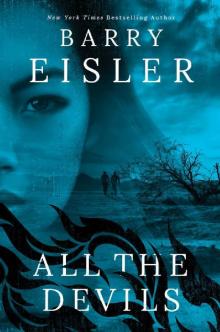 All the Devils
All the Devils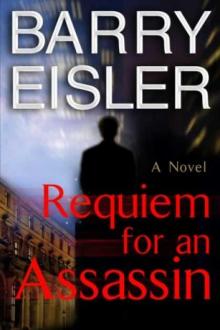 Requiem for an Assassin
Requiem for an Assassin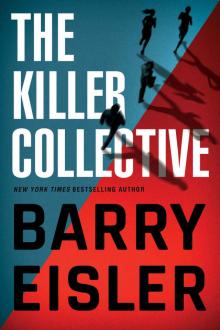 The Killer Collective
The Killer Collective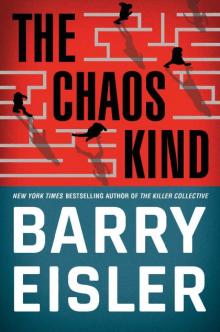 The Chaos Kind
The Chaos Kind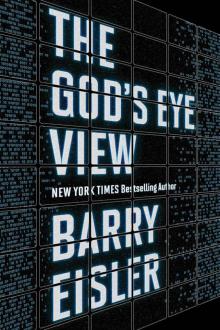 The God's Eye View
The God's Eye View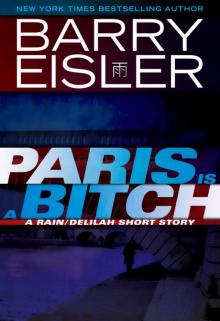 Paris is a Bitch
Paris is a Bitch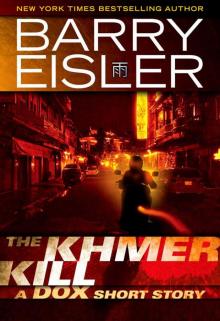 The Khmer Kill: A Dox Short Story (Kindle Single)
The Khmer Kill: A Dox Short Story (Kindle Single)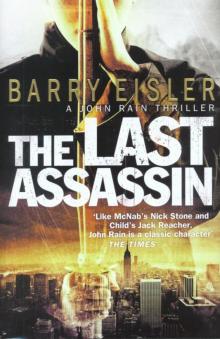 The Last Assassin
The Last Assassin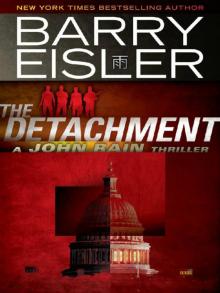 The Detachment
The Detachment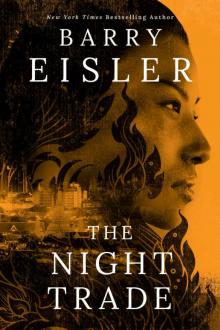 The Night Trade (A Livia Lone Novel Book 2)
The Night Trade (A Livia Lone Novel Book 2)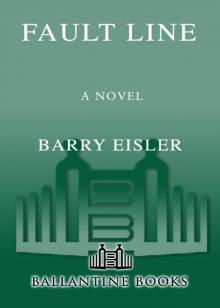 Fault Line
Fault Line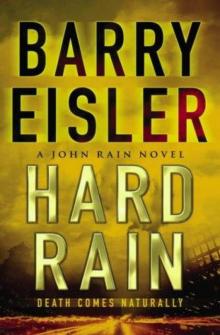 Hard Rain
Hard Rain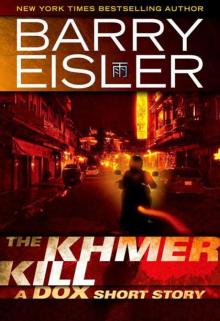 The Khmer Kill_A Dox Short Story
The Khmer Kill_A Dox Short Story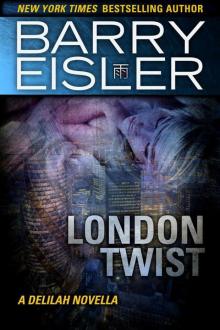 London Twist: A Delilah Novella
London Twist: A Delilah Novella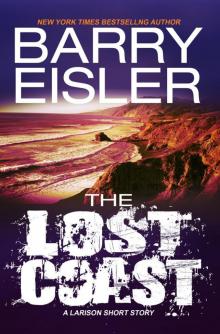 The Lost Coast
The Lost Coast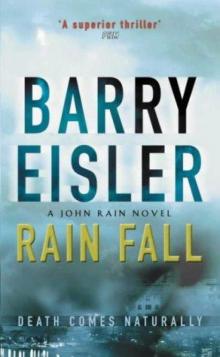 Rain Fall
Rain Fall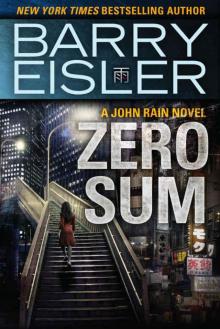 Zero Sum
Zero Sum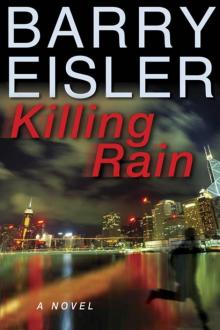 Killing Rain
Killing Rain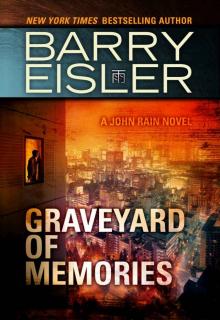 John Rain 08: Graveyard of Memories
John Rain 08: Graveyard of Memories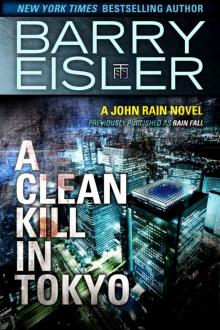 A Clean Kill in Tokyo (previously published as Rain Fall)
A Clean Kill in Tokyo (previously published as Rain Fall) Inside Out: A novel
Inside Out: A novel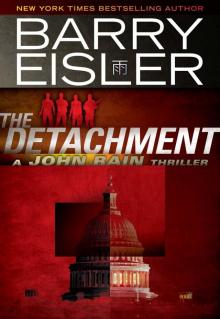 John Rain 07 - The Detachment
John Rain 07 - The Detachment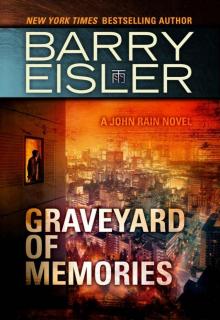 Graveyard of Memories
Graveyard of Memories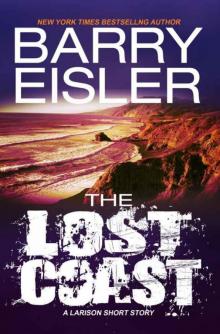 The Lost Coast -- A Larison Short Story
The Lost Coast -- A Larison Short Story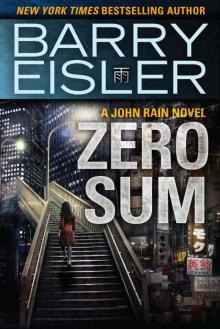 Zero Sum (A John Rain Novel)
Zero Sum (A John Rain Novel)